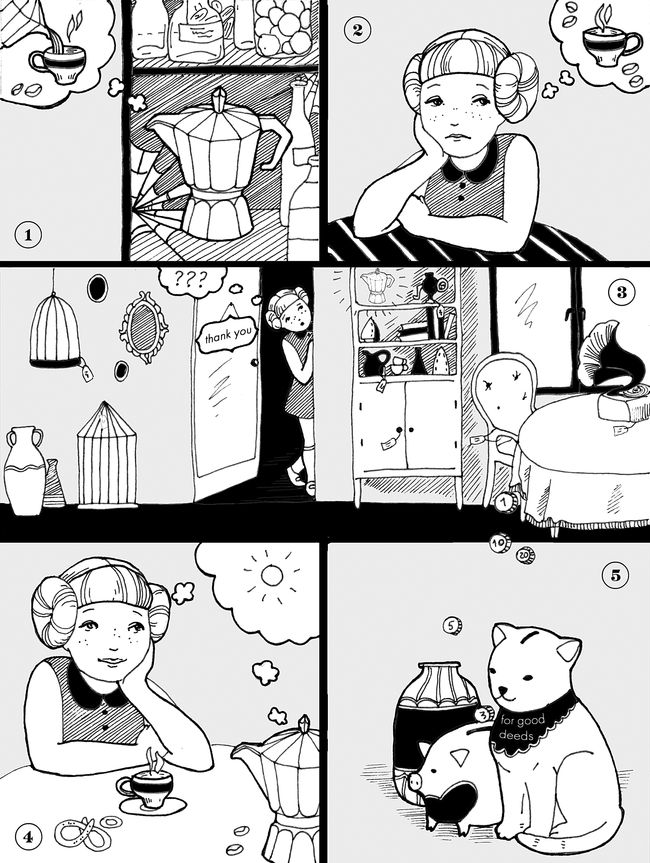Unwanted things help save lives
Charity can be affordable, exciting, and attractive: the know-how from Kyiv and Odesa
Charity shops are a new phenomenon in the post-Soviet countries. The first such store in the former Soviet space was opened in Saint Petersburg in 2010. A year ago a charity shop appeared in Kyiv, and later another one in Odesa. In all three cases the initiative and organization were in the hands of young, active women. All of them have education and jobs, whereas these charitable projects (which are also important for the environment) are a sort of hobby.
Such shops are run on a very basic scheme: some people bring unwanted items, others buy them, and the proceeds go to charity. Besides, such practice helps instill ecological thinking, as people realize that things can be reused, and thoughtless consumerism can be kept at bay. Also, charity shops champion the idea that “helping others and yourself is easy and fun.” They are quite common across the world. What is more important, they are quite popular, too. Great Britain alone has around 7,000 charity shops.
Ukraine has only two, in Kyiv and Odessa, and at present they are looking for premises. Despite this shortcoming, they are active online, and people willingly bring things, say the initiators and volunteers. According to them, women and girls are the most active. A generalized portrait of an average donor and customer of a charity shop will reveal a young middle-income person with an active approach towards life.
“Today fewer people have money to donate, while many would like to get rid of unwanted things. Shopping with us is a real treat: we sell good stuff, and the prices do not go over 100 hryvnias. The only exception is precious items, which we sell at an auction,” tells Olha DOBRYKOVA, one of the masterminds, and a volunteer at the Odesa charity shop Spasybi (Thank you). During its six months’ existence, the shop has managed to raise almost 27,000 hryvnias. “We have used all this money to help people in need. Of that, almost 13,000 was sent to the little Nikolina Ostapchuk, who had drunk a cleansing liquid and burned her gullet.”
“Before this project I had imagined charity as something fantastical, impossible without big money. People are generally reluctant to part with money. Here they give away what they actually do not need,” explains Hanna UVAROVA, one of the three masterminds of Ukraine’s first charity shop in Kyiv. Uvarova, a yoga instructor, decided to take up the charity shop project, together with her friends Olena Klymenycheva and Iryna Haharina, because it helps “find your place in life.” “It is very important for me to be socially relevant, and to do something which allows you to thank yourself. Working on this project, we met a lot of fantastic people who, apart from their main jobs, are involved in various other fun things like culture, voluntary work, etc.,” shared Uvarova.
At present, the girls are looking for a building. What they intend to open there is not just a shop, it is rather an art area. “We want to create a stylish store, attractive for the young: with book crossing, public talks, etc.,” explained Uvarova. It will be more than just a neat second-hand store: a special area which will unite caring and conscientious people. “In the summer we were selling all items at prices up to 100 hryvnias. Now we agreed that it is easier to sell interesting, unique items, that is, to attract customers with quality rather than quantity. For example, last December our friend, the fashion designer Maryna Rybalko, made a special collection, which we are selling on the Internet. The minimum price of one item is 500 hryvnias. So this is how we promote the designer and raise money for charity,” said Uvarova.
True enough, the initiators of the projects saw that many people took this not as a charity, but rather as an opportunity to get rid of their junk. Some bring clothes in such poor condition that it would make a scarecrow blush. Others bring good things, but so outdated that hardly anyone might want to buy them. However, there are people who bring brand new things they bought for themselves, but never wore for some reason. But such are very few.
“We accept only good, undamaged things, ready for ‘another life.’ When people call us and say that they want to send us some stuff, we ask, ‘Would you buy the item you want to send us?’ Unfortunately, many people think we collect clothes for the poor, and give us totally ruined things. The main condition is that the item has to be at least in good repair, if not excellent,” explains Dobrykova. This goes not only for clothes, but also for dishes, books, and other things.
According to Uvarova, besides clothes, their shop will be selling books, ornaments, knick-knacks, developmental toys for children, and many other things. The girls have already organized one campaign, when they collected two full carloads. Good but outdated things were sent over to the local Salvation Army, which handed them out to the homeless.
“Clothes have to be clean, washed, without defects, holes, or stains – in a word, so you yourself might want to buy such a thing. We wish to create something like a brand, so people are attracted to our shop. We promote reusing things and environmentally-friendly lifestyle. It has to be really cool if we want to attract young people,” summarized Uvarova. Most importantly, engaging in a “circulation” of clothes in a city, active young people do something more than just practicing an ecological lifestyle. They also help concrete people, for whom any aid is priceless.






